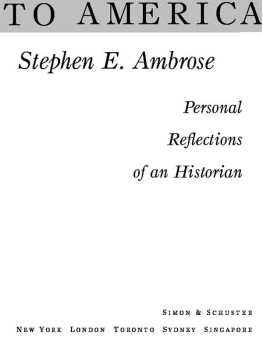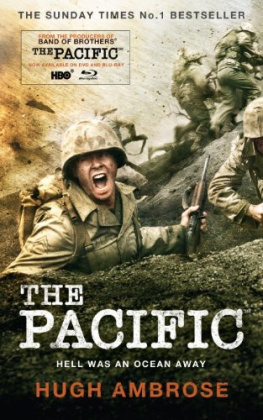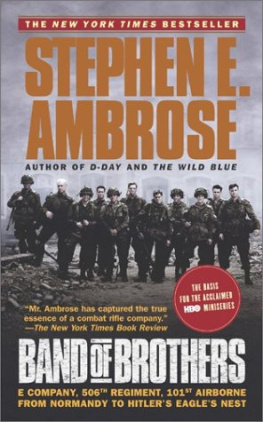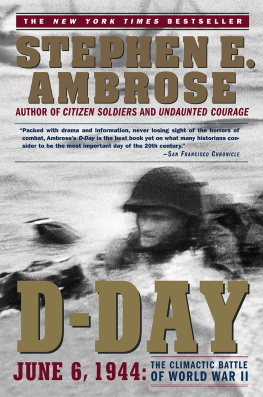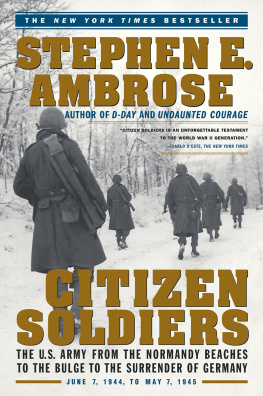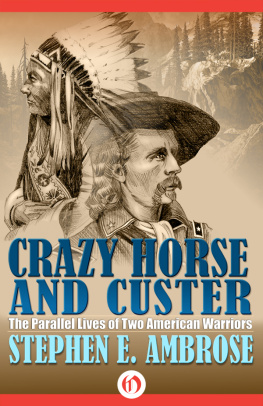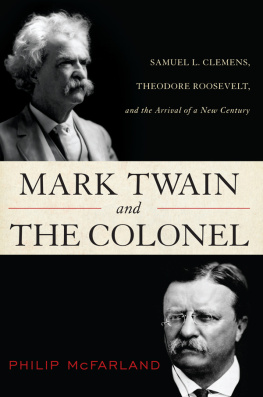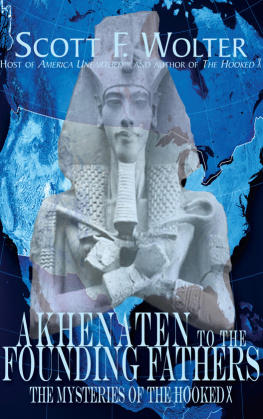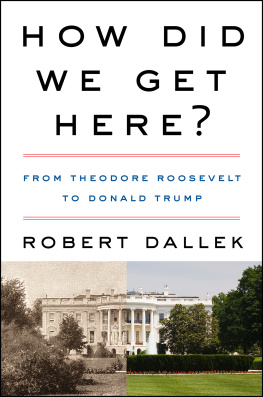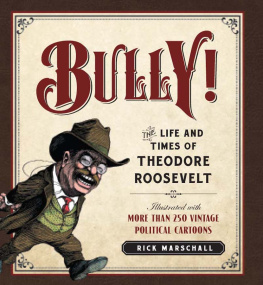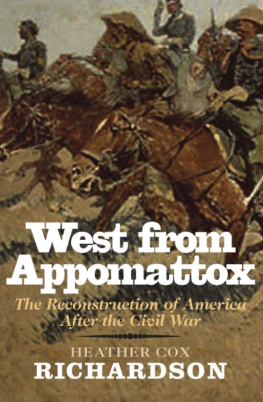Ambrose - To America: personal reflections of an historian
Here you can read online Ambrose - To America: personal reflections of an historian full text of the book (entire story) in english for free. Download pdf and epub, get meaning, cover and reviews about this ebook. City: New York;United States, year: 2002, publisher: Simon & Schuster, genre: History. Description of the work, (preface) as well as reviews are available. Best literature library LitArk.com created for fans of good reading and offers a wide selection of genres:
Romance novel
Science fiction
Adventure
Detective
Science
History
Home and family
Prose
Art
Politics
Computer
Non-fiction
Religion
Business
Children
Humor
Choose a favorite category and find really read worthwhile books. Enjoy immersion in the world of imagination, feel the emotions of the characters or learn something new for yourself, make an fascinating discovery.
To America: personal reflections of an historian: summary, description and annotation
We offer to read an annotation, description, summary or preface (depends on what the author of the book "To America: personal reflections of an historian" wrote himself). If you haven't found the necessary information about the book — write in the comments, we will try to find it.
To America: personal reflections of an historian — read online for free the complete book (whole text) full work
Below is the text of the book, divided by pages. System saving the place of the last page read, allows you to conveniently read the book "To America: personal reflections of an historian" online for free, without having to search again every time where you left off. Put a bookmark, and you can go to the page where you finished reading at any time.
Font size:
Interval:
Bookmark:

The Wild Blue: The Men and Boys Who Flew the B-24s over Germany
Nothing Like It in the World: The Men Who Built the Transcontinental Railroad, 18631869
Comrades: Brothers, Fathers, Heroes, Sons, Pals
The Victors: Eisenhower and His Boys: The Men of World War II
Americans at War
Citizen Soldiers: The U.S. Army from the Normandy Beaches to the Bulge to the Surrender of Germany, June 7, 1944May 7, 1945
Undaunted Courage: Meriwether Lewis, Thomas Jefferson, and the Opening of the American West
D-Day: June 6, 1944: The Climactic Battle of World War II
Band of Brothers: E Company, 506th Regiment, 101st Airborne from Normandy to Hitlers Eagles Nest
Nixon: Ruin and Recovery, 19731990
Eisenhower: Soldier and President
Nixon: The Triumph of a Politician, 19621972
Nixon: The Education of a Politician, 19131962
Pegasus Bridge: June 6, 1944
Eisenhower: The President
Eisenhower: Soldier, General of the Army, President-Elect, 18901952
The Supreme Commander: The War Years of General Dwight D. Eisenhower
Duty, Honor, Country: A History of West Point
Eisenhower and Berlin, 1945
Crazy Horse and Custer: The Parallel Lives of Two American Warriors
Rise to Globalism: American Foreign Policy Since 1938
Ikes Spies: Eisenhower and the Espionage Establishment
Halleck: Lincolns Chief of Staff
Upton and the Army
A Wisconsin Boy in Dixie

SIMON & SCHUSTER
Rockefeller Center
1230 Avenue of the Americas
New York, NY 10020
Copyright 2002 by Ambrose & Ambrose, Inc.
All rights reserved,
including the right of reproduction
in whole or in part in any form.
SIMON & SCHUSTER and colophon are registered trademarks of Simon & Schuster, Inc.
Designed by Karolina Harris
Library of Congress Cataloging-in-Publication Data is available.
ISBN 10: 0-7432-4942-9
ISBN 13: 978-0-7432-4942-3
Visit us on the Word Wide Web:
http://www.SimonSays.com
For Paul Schwarzenberger, M.D.,
Alicia R. Millet, R.N.,
Suzanne Murray, R.N.,
And the Stanley S. Scott Cancer Center, L.S.U. Health Sciences Center
In 1953, when I was an eighteen-year-old sophomore at the University of Wisconsin, I took a course in American history entitled Representative Americans. Professor William B. Hesseltine taught it. From his first lecture, I was enthralled. He spoke about presidents, generals, senators, novelists, businessmen. Who they were, what they did, what effect it had.
It was storytelling at its best, about real people whose actions had a direct impact on my life, even if they had lived a century or more ago. Some made mistakes. Some were eniuses. Some were kind, others cruel. They were far more interesting than any character in a novel or actor in a movie.
At the end of his first lecture, on George Washington, I approached the professorshort, bald, pudgy, with a big curved pipeand told him, as he lit up, that I wanted to do what he did for a living. How do I do that? He laughed, then said, stick around and I will show you. That afternoon I went to the registrars office and switched my major from premed to history.
A half-century later, Ive never wavered. History is everything that has ever happened. No one can ever master everything, but your interest will never flag. When I first began teaching American history, my students would come to me before the first day of class and say, Doc, I hate history. Im only here because it is required.
My reply was, You dont mean that. You dont hate history, you hate the way it was taught to you in high school. But history is about people, and there is nothing more fascinating to people than other people, living in a different time, in different circumstances.
At the beginning of the twenty-first century, our students know that they live in the richest and freest nation that ever was and they want to know how that happened. They realize that God did not decide to make the United States so supremely special. They want to know who those people were who made it so, what they did, with what consequences. One week in early 2002, I noted that four of the top six books on the New York Times Book Review nonfiction best-seller list were about American history.
I was taught by professors who had done their schooling in the 1930s. Most of them, like many intellectuals of their time, were scornful of, even hated, big business. They presented Andrew Carnegie, John D. Rockefeller, J. P. Morgan, and other fabulously successful businessmen and investors as devoid of any social consciousness, men whose goal was to plunder; they brought on the Great Depression.
My professors had praise for the anti-Federalists of the Revolutionary era, for Jacksonian Democrats later on. Of course they were four-square for Lincoln in the Civil War, but not for his Republican Party, especially under Ulysses Grant. In the period from the end of Reconstruction down to the 1930s, the only parties they praised were the Populists, the Progressives, and Woodrow Wilsons Democrats. After 1932, it was Franklin Roosevelt and the New Deal Democrats, although many of the professors were Socialists who preferred Eugene Debs and Norman Thomas to Wilson and Roosevelt.
These professors were not left-wing zealots, but they couldnt see much good in the Republican Party. Still, they adhered to the first rule for historiansalways stick to the truth. Tell or write only what you can prove. This they did. I was an undergraduate less than a decade after World War II. These men of the Second World War were patriotic, many of them veterans, who wished that the United States had done this or that differently, but who loved their country nevertheless.
At twenty-four with a Ph. D. in hand, I became a teacher of history. My subject was the Civil War. I was a military historian, studying and writing about the generals. Then in 1964, I went to work on Dwight Eisenhowers biography. For the next decade I was writing about him. That was my scholarly life. My country was at war in Vietnam, which I thought a dreadful mistake. I was a dove, not very active in the antiwar movement but very much an outspoken critic.
I spent about half of my time with World War II veterans and historians, who were mainly hawks, and the other half with students, who were doves. The first group was generally positive about the whole of American history, the second group critical. I agreed with the first on some matters, with the second on others.
In this short volume, I tell stories about Americans from the past, what they did, how they did it, with what results. I am a storyteller by training and inclination. I tell war stories, political stories, academic stories, business stories. I tell stories about some of my admired AmericansGeorge Washington, Thomas Jefferson, Lewis and Clark, Andrew Jackson, Ulysses Grant, Crazy Horse, Custer, Theodore Roosevelt, Franklin Roosevelt, Dwight Eisenhower, Jackie Robinson, Betty Friedan. And some stories about Americans who are far from being my favoritesAndrew Johnson, Lyndon Johnson, Richard Nixon.
Whether Im writing a story, or telling it to family or friends gathered around a campfire, or giving a lecture to students, I hope that my listener is concentrating on what is happening and wants to know how it turns out.
One of the wonderful things about a story is that it can be anythingheroic, sad, funny, triumphant, tragic, good, evil. To tell a story well, you need to help the listener identify with the main character, whether he is struggling in a small boat against a rampaging sea, or risking his or her life to secure civil rights, promoting the status of women. What happened? Who made it happen? What are the results today? Where do we need to go? It is through history that we learn who we are and how we got that way, why and how we changed, why the good sometimes prevailed and sometimes did not.
Font size:
Interval:
Bookmark:
Similar books «To America: personal reflections of an historian»
Look at similar books to To America: personal reflections of an historian. We have selected literature similar in name and meaning in the hope of providing readers with more options to find new, interesting, not yet read works.
Discussion, reviews of the book To America: personal reflections of an historian and just readers' own opinions. Leave your comments, write what you think about the work, its meaning or the main characters. Specify what exactly you liked and what you didn't like, and why you think so.

